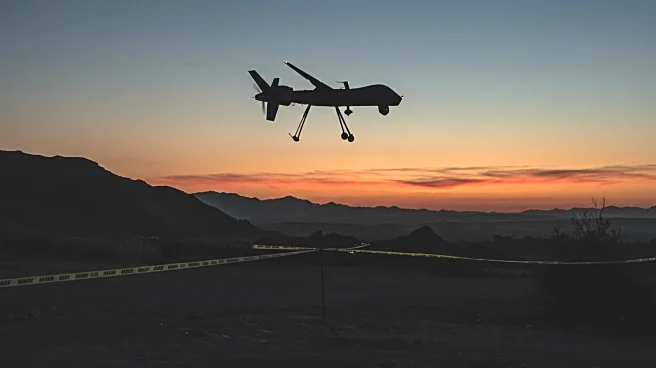What's Happening?
Russia has escalated its drone attacks on Ukrainian cities, significantly impacting the ongoing conflict. The Kremlin's strategy involves overwhelming Ukraine's air defenses with cheap, mass-produced drones, forcing Ukraine to respond with more expensive countermeasures. The use of drones has reshaped warfare, with both Russia and Ukraine enhancing their drone capabilities. The attacks have increased civilian casualties and strained Ukraine's resources, while Russia continues to deny targeting civilians. The evolving tactics highlight the role of drones in modern warfare and the challenges they pose to traditional military strategies.
Why It's Important?
The intensification of drone attacks underscores the evolving nature of warfare, where unmanned vehicles play a crucial role. This shift has implications for global military strategies, as countries adapt to new technologies and tactics. The conflict in Ukraine serves as a testing ground for drone warfare, influencing future military developments and international security policies. The humanitarian impact of these attacks highlights the need for effective countermeasures and international cooperation to address the challenges posed by drone warfare.
What's Next?
Both Ukraine and Russia are working to develop advanced drone technologies, including AI-powered drones and interceptor drones. These innovations could change the dynamics of the conflict and influence future military strategies. The international community may need to consider new regulations and agreements to address the ethical and security implications of drone warfare.









